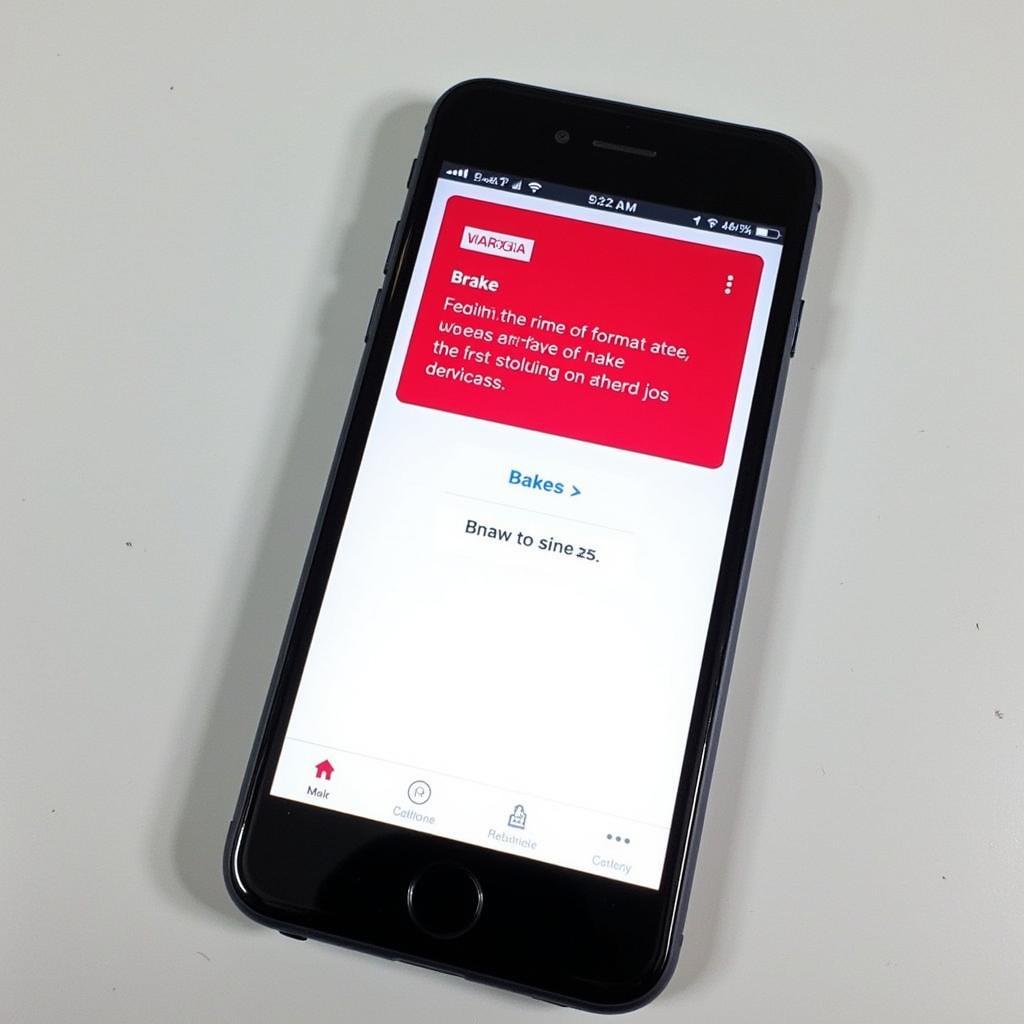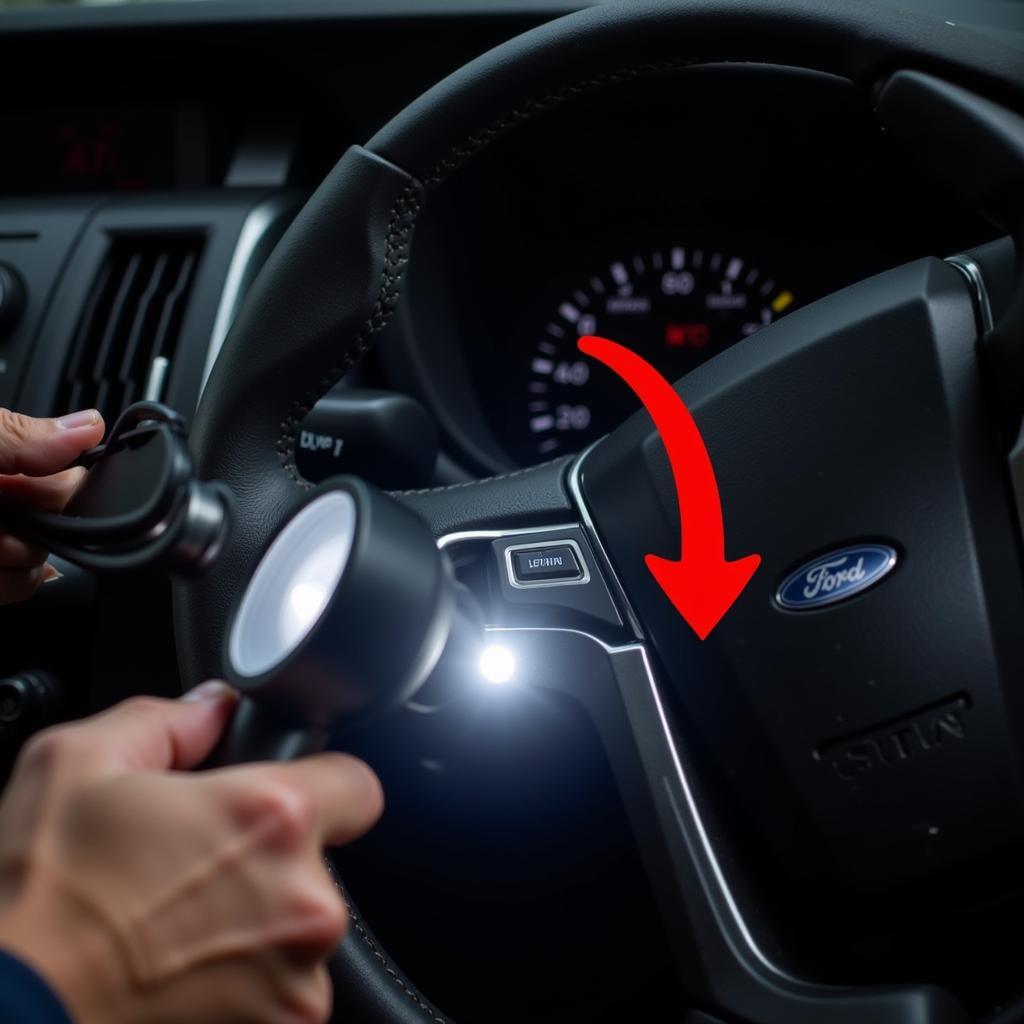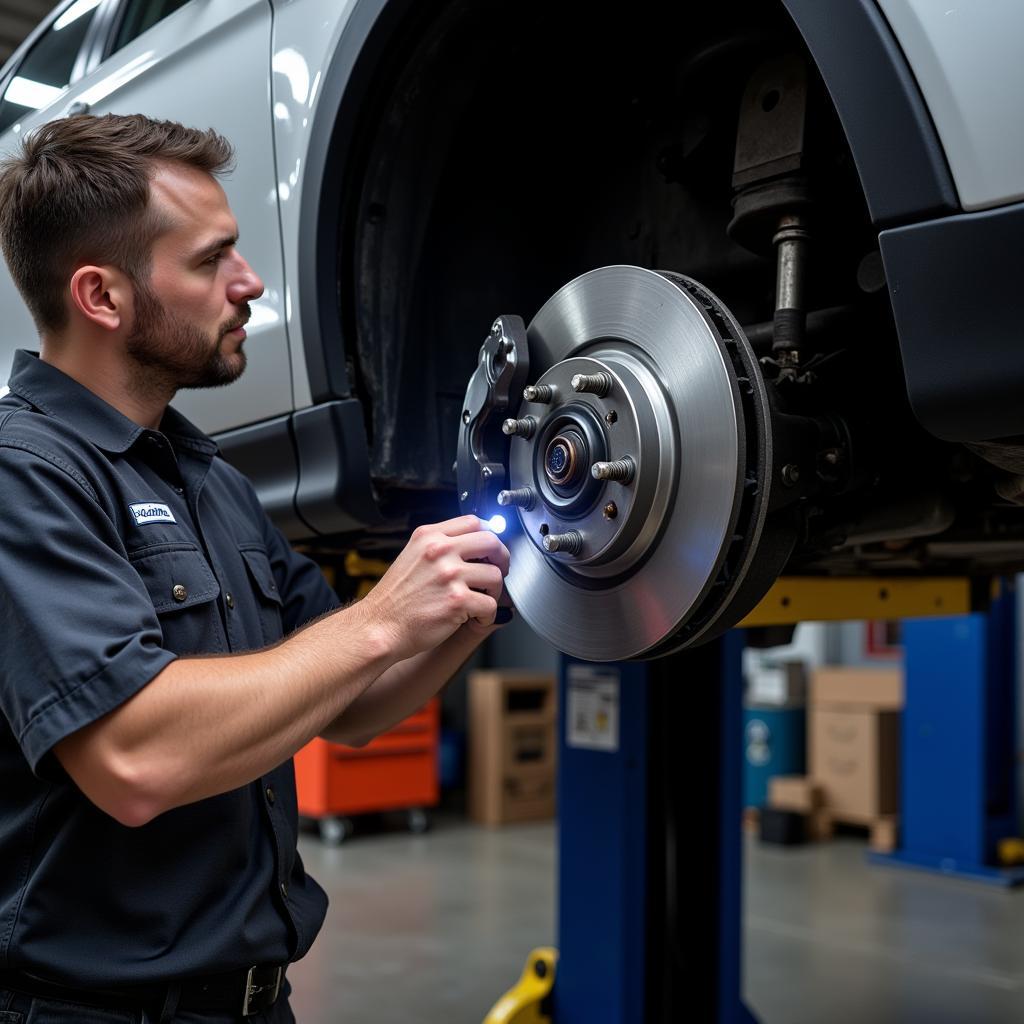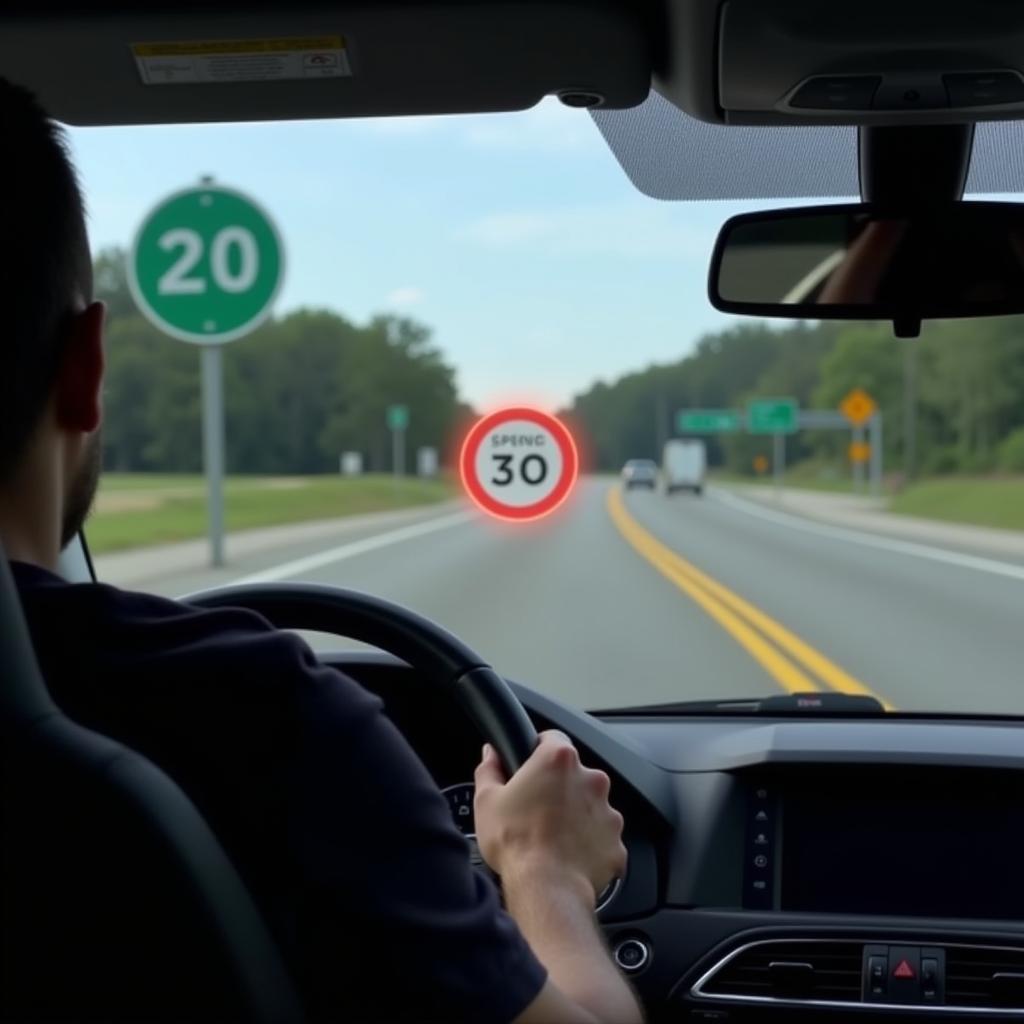The FordPass app is a great way to stay connected to your Ford vehicle, offering features like remote start, lock/unlock, and vehicle location. It can also alert you to potential issues, including brake problems. A “FordPass brake warning” can be alarming, but it doesn’t always mean a trip to the mechanic is immediately necessary. This article will cover the common causes of FordPass brake warnings, what they mean, and what steps you can take to address them.
 FordPass Brake Warning Light on Phone
FordPass Brake Warning Light on Phone
Understanding FordPass Brake Warnings
The FordPass app might display a brake warning for several reasons, some more serious than others. These warnings stem from various sensors and systems within your Ford vehicle that communicate with the app.
Common Causes of FordPass Brake Warnings:
- Parking Brake Engaged: This is the most frequent cause. If you left your parking brake partially or fully engaged, FordPass will remind you to release it before driving.
- Low Brake Fluid: A brake warning can indicate a leak in your brake lines or worn brake pads.
- Brake Pad Wear: Many Ford vehicles have sensors that monitor brake pad wear. If your pads are nearing the end of their life, FordPass will issue a warning.
- ABS or Traction Control Issues: Problems with your Anti-lock Braking System (ABS) or traction control system can also trigger a brake warning in FordPass.
- Electrical Glitch: Occasionally, a temporary glitch in your vehicle’s electrical system can result in a false warning.
 Mechanic Checking Brake Fluid
Mechanic Checking Brake Fluid
What to Do When You Receive a FordPass Brake Warning
- Check Your Parking Brake: Ensure your parking brake is fully disengaged. Sometimes even a slight engagement can trigger the warning.
- Inspect Brake Fluid Level: If you’re comfortable doing so, carefully check your brake fluid level. If it’s low, there might be a leak.
- Recall Recent Driving Conditions: Did you recently drive in challenging conditions like heavy rain, snow, or off-road? This could trigger warnings related to ABS or traction control.
- Restart Your Vehicle and Check FordPass: A simple restart might resolve a temporary electrical glitch. After restarting, check if the warning persists.
When to Seek Professional Help
While some FordPass brake warnings are easily addressed, others require professional attention. Contact a certified mechanic or your Ford dealership if:
- The Warning Persists: If the warning doesn’t disappear after checking the parking brake and restarting your vehicle.
- You Notice Physical Signs: If you observe leaking brake fluid, grinding noises when braking, or a spongy brake pedal.
- The Warning is Accompanied by Other Warning Lights: If the FordPass warning appears alongside dashboard warning lights, such as the ABS or traction control lights.
 Mechanic Inspecting Car Brakes on a Lift
Mechanic Inspecting Car Brakes on a Lift
“Ignoring brake warnings can lead to serious safety hazards,” warns John Miller, a senior automotive technician with over 20 years of experience. “Even if it seems like a minor issue, it’s always best to err on the side of caution and have your brakes checked by a professional.”
FordPass Brake Warning: FAQs
Q: Can I still drive my Ford if I get a brake warning on FordPass?
A: It depends on the cause. If it’s just the parking brake, then yes. However, if it’s related to low brake fluid or other system issues, it’s best to have your vehicle towed to avoid potential accidents.
Q: How often should I check my brake fluid?
A: It’s a good idea to visually inspect your brake fluid level at least once a month.
Q: Does FordPass diagnose brake problems?
A: FordPass alerts you to potential issues but doesn’t provide specific diagnoses. It’s best to consult a mechanic for proper diagnosis and repair.
Conclusion
While a FordPass brake warning can be unsettling, understanding its potential causes can save you time, money, and worry. Remember to check for simple solutions like the parking brake and restart your vehicle. However, don’t hesitate to seek professional help if the warning persists or you notice any other issues with your brakes. Ensuring your brakes are in top condition is paramount for your safety and the safety of others on the road.

